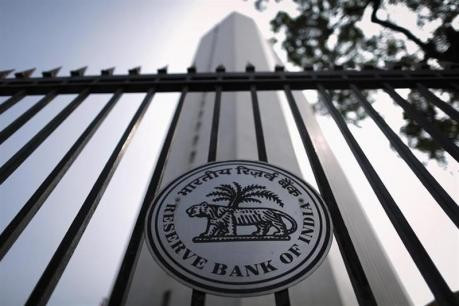Reserve Bank of India stands firm on rates despite inflation dip

The Reserve Bank of India has left its main rate unchanged at the last policy decision of 2014, despite a sharp decline in inflation and a slowdown in growth and rate cuts by neighbours like China.
However, the hint of a rate cut next year pushed bond yields sharply lower.
The central bank said the policy rates may be reduced early next year depending upon the improvement in inflationary scenario towards the target rate of 4% and the fiscal health of the economy. The benchmark 10-year bond yield fell below 8% to its lowest since 15 July.
Raghuram Rajan, the central bank governor, said lowering interest rates now to support growth is wrong, despite what the country's corporate entities might think. Rajan argued that sustainable growth is an even more important agenda, for which inflation needs to be lower.
Shares remained weak and rupee too was not that responsive to the statement. The currency had improved 0.65% from Monday's multi-month low prior to the rate decision itself and held that level even after the announcement. BSE Sensex, the benchmark share index traded 0.5% down after the rate announcement.
The RBI kept the repo rate, the rate at which it lends overnight funds to banks in the daily liquidity adjustment facility, at 8% allowing the reverse repo at 7%. Cash reserve ratio, the share of banks assets to be kept with the central bank in cash, was left unchanged at 4%.
Analysts have largely predicted the same results but a section of the market was expecting rate cuts given the recent fall in inflation and growth rate.
Asia's third-largest economy grew 5.3% in the September quarter, down from 5.7% growth in the previous quarter as per data on 28 November. The 38% side in Brent crude since June has helped ease the country's CPI inflation to a record low of 5.52% by October.
Rajan said the view that the central bank is not concerned about growth is not correct. He said the bank will soon shape a new monetary policy for the country.
Moody's Investors Service said on 30 October that the recent economic, fiscal and financial reform measures by India will, if successfully implemented, sustain higher GDP growth and address some of the constraints on India's sovereign credit profile.
"Higher investment and lower macro-economic imbalances could sustain growth rates of around 7.5% over the next 5-10 years. Such a result would be significantly higher than the 5%-6% growth Moody's expects for India in 2015," the rating agency said in a press release.
© Copyright IBTimes 2025. All rights reserved.






















